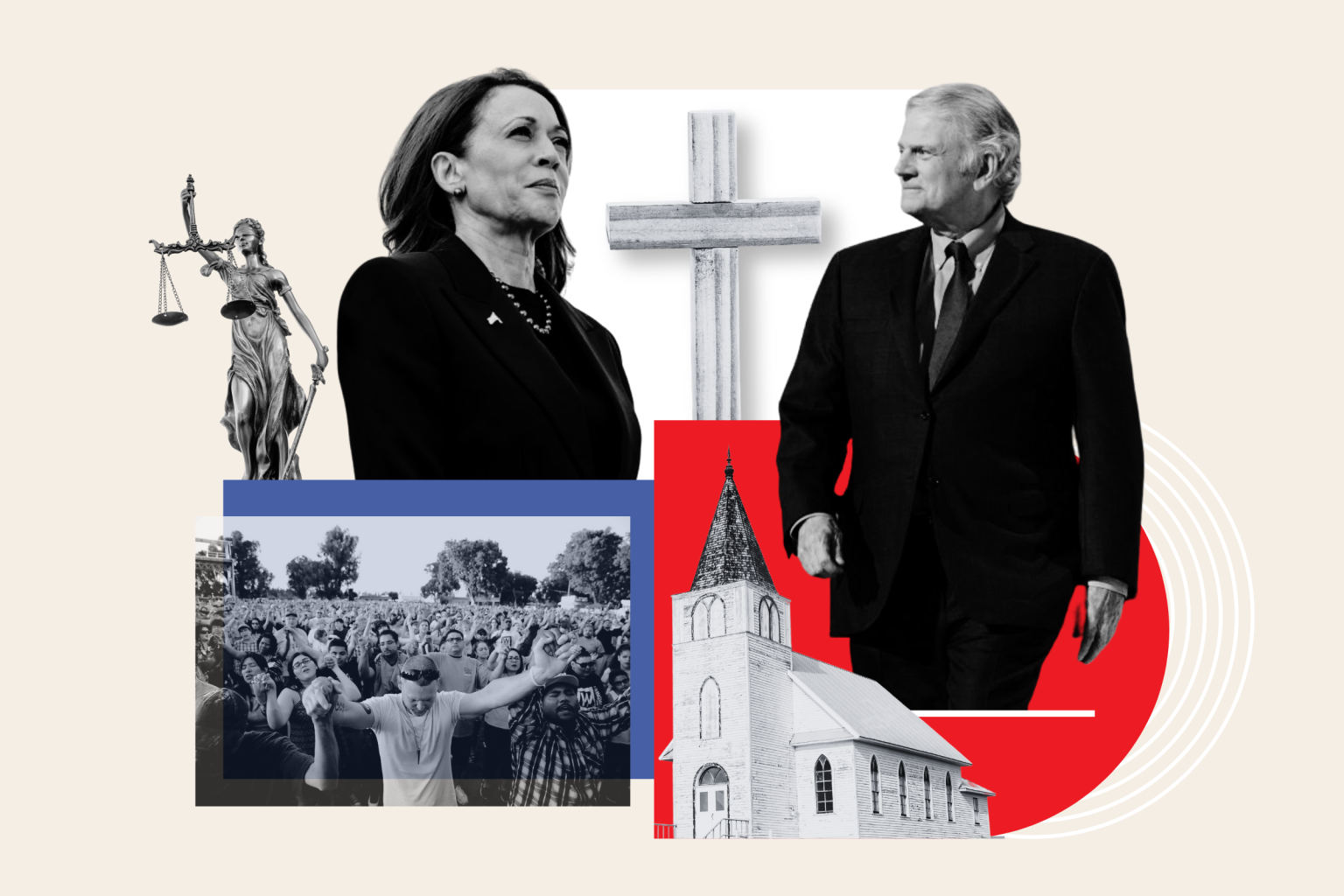The content presented discusses a recent advert released by Evangelicals for Harris, a group supporting Vice President Kamala Harris in the presidential race against Donald Trump. The advert features clips of Trump making questionable statements overlaid with a biblical warning about dangerous times. The Rev. Franklin Graham, a longtime Trump supporter, has expressed disapproval over the use of footage of his late father, Billy Graham, in the ad. Franklin Graham has stated that his father would have supported Trump due to his conservative values and policies. However, Evangelicals for Harris has pushed back against Graham’s objections, emphasizing the importance of addressing Trump’s moral failings and holding his actions up to biblical scrutiny.
The clash between Evangelicals for Harris and Franklin Graham highlights a broader ideological struggle within the evangelical community. While white evangelical voters overwhelmingly support Trump, not all evangelicals align with the GOP. Evangelicals for Harris is targeting evangelical voters in crucial swing states, aiming to convince them to support Harris instead of Trump or not voting at all. The group has defended their use of footage from Billy Graham’s sermon, asserting that it falls within fair use protections under the Copyright Act. They argue that it is essential to discuss Trump’s behavior in the context of evangelical values and biblical teachings.
The evolving landscape of evangelical politics reflects a nuanced and complex decision-making process for voters. Trump continues to rally evangelical support by positioning himself as a champion of conservative Christian values, particularly through his stance on issues like abortion. The ongoing struggle within the evangelical community to define the most critical voting priorities—whether economic conservatism, social values, or marginalized groups—is evident in the discussions surrounding Trump’s leadership and moral character. While Evangelicals for Harris aims to sway evangelical voters towards a different political direction, experts remain divided on the potential impact of these efforts in the upcoming election.
Despite Evangelicals for Harris’ claims that their efforts are critical in aligning with biblical values and protecting vulnerable populations, skeptics question whether their messaging will resonate with evangelical voters. Franklin Graham’s influence within the evangelical community, particularly after his support for Trump in previous elections, is seen as limited. Some experts believe that white evangelicals are unlikely to be swayed away from Trump, given their conservative and reactionary political inclinations. However, Evangelicals for Harris remains optimistic about their potential impact, pointing to successful outcomes in previous elections and emphasizing the importance of character and moral leadership in the political sphere.
The broader implications of Evangelicals for Harris’ campaign resonate beyond the 2024 presidential election. The group’s efforts challenge the traditional association between evangelicals and the GOP, advocating for a shift towards a different political direction. As discussions around evangelical identity, morality, and political engagement continue, the role of faith-based groups in shaping electoral outcomes remains a topic of interest. While the GOP’s evangelical alliance with Trump appears steadfast, voices within the community are calling for greater independence and discernment in aligning with political candidates. Ultimately, the clash between Evangelicals for Harris and supporters of Trump underscores the complexity of evangelical political engagement and the ongoing efforts to reshape the narrative surrounding Christian values in the public sphere.


